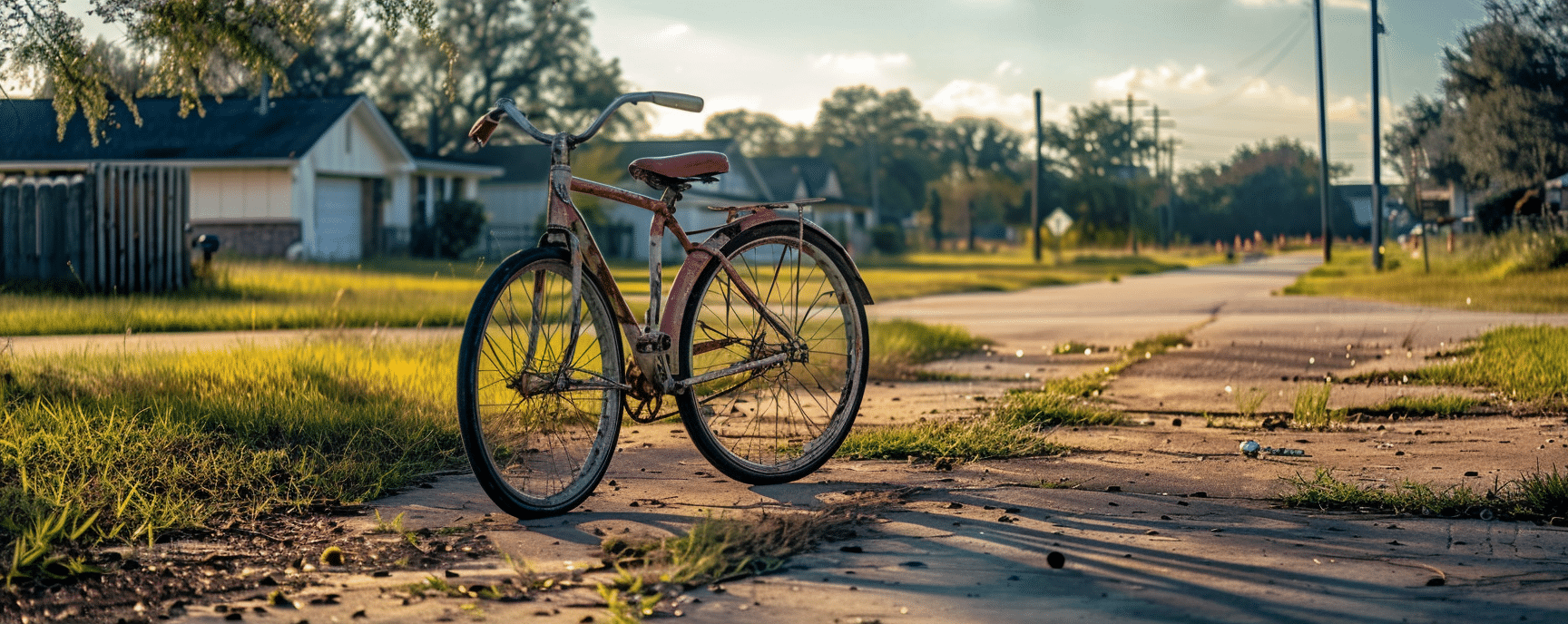Key Takeaways
- Bicycle accident claims can cover a range of situations including personal injuries, wrongful death, and product liability, and understanding which type of claim to pursue is vital for proper compensation.
- Establishing liability in a bicycle accident requires a thorough understanding of legal standards and factors like traffic laws and road conditions, and shared fault can decrease the claim’s value.
- Proper documentation and calculation of both economic and non-economic damages are crucial in a bicycle accident claim, and legal assistance can be invaluable in navigating insurance negotiations and maximizing one’s compensation.
Let's Go Beyond, to Bring You Back
Let's get you the compensation you're entitled to. Get a FREE Consultation today.
Let's Go Beyond, to Bring You Back
You deserve the compensation you’re entitled to, call for your FREE Case Review today.
Understanding Bicycle Accident Claims
In the aftermath of a bicycle accident, you may find yourself facing physical pain, emotional trauma, and a mountain of financial concerns as a bicycle accident victim. Understanding the ins and outs of a bicycle accident claim is the first step in climbing that mountain. It’s not just about knowing you have rights; it’s about knowing how to assert them effectively to recover from the damages you’ve suffered.
Types of Bicycle Accident Claims
The road to recovery may lead you through various avenues of claims, from most personal injury claims addressing personal injuries to the wrenching path of wrongful death claims should the worst occur. If a defective product contributed to the accident, you might find yourself up against manufacturers in a product liability claim.
Each type of claim carries its own set of complexities and nuances, but knowing which applies to your situation is a cornerstone in building a strong case.
Factors Affecting Claim Value
As you delve into the details of your claim, you’ll find that several factors play a critical role in its valuation. The gravity of your injuries and the extent of any property damage are powerful influencers of the final compensation figure. But it’s not just about tangible losses; intangible suffering, like pain and emotional distress, also carries weight in the legal scales, though it’s harder to quantify. Sometimes, a claim’s value is also shaped by punitive damages, designed to punish egregious negligence. Understanding the intricacies of personal injury law can help you navigate this complex process.
Establishing Liability in Bicycle Accidents
When the rubber meets the road in a bicycle accident claim, one of the critical elements is determining who is at fault. Establishing liability isn’t just about pointing fingers; it’s about dissecting the event layer by layer to reveal the truth. Factors like traffic laws, road conditions, and what is revealed by the evidence all come into play, painting a picture of responsibility that can be legally recognized.
Common Causes of Bicycle Accidents
The common threads weaving through many bicycle accidents, including bike accident scenarios, are:
- Distractions
- Traffic rule violations
- The all-too-common invisibility of cyclists to other road users
- Inadequate bike maintenance
- Riding an improperly sized bike
These factors can lead to accidents that leave riders with severe injuries or worse.
Determining Fault
To prove fault, you must navigate through legal criteria that sound more like a dance than a directive—duty of care, breach of duty, causation, and damages. It’s a tango of evidence and legal standards that, when performed correctly, leads to accountability. However, bear in mind that if you shared in the fault, it could affect your compensation under comparative or contributory negligence laws.
Houston Bicycle Accident Lawyer
Get Compensated For Your Injuries & Damages! Call Us For A FREE Case Review And Know What Your Case Is Worth.
Documenting and Calculating Damages
The evidence you collect and the calculations you make are the bedrock of your bicycle accident claim. Whether it’s the immediate medical bills or the long-term impact on your income, every dollar needs to be accounted for if you’re to receive full compensation.
Economic Damages
Economic damages are the financial backbone of your claim, encompassing everything from medical expenses and lost wages to the cost of fixing or replacing your beloved bike. These are tangible, quantifiable losses that can be documented through bills, receipts, and employment records.
Non-Economic Damages
Non-economic damages, on the other hand, are like the shadows of your claim—real, but harder to touch. They include the pain and suffering, the emotional trauma, and the loss of life’s joys that no amount of money can truly compensate. Yet, with careful documentation and the right legal guidance, even these can be quantified to some extent.
Proving Damages
Proving your damages is akin to assembling a puzzle where each piece is a snippet of evidence: photos of the accident scene, witness testimonies, and a detailed account of your injuries’ progression. It’s a meticulous process, but when the picture is complete, it tells a compelling story that can sway adjusters or, if necessary, a jury.
Navigating the Insurance Claim Process
Facing the insurance company can feel like stepping into a maze. Filing a claim is just the beginning; what follows is a series of twists and turns involving deadlines, negotiations, and sometimes, dead ends.
Filing an Insurance Claim
The clock starts ticking the moment your accident occurs. Obviously, timely filing of your case is critical. But time is an issue earlier in the process too. For example, it’s important to start treatment promptly and get timely documentation of lost earnings or the like. Filing the claim with the insurer starts the compensation process rolling, but having gotten prompt treatment for injuries and documentation of losses will help arm you against the insurer.
Negotiating with Insurance Adjusters
Insurance adjusters are like gatekeepers to your compensation, and negotiating with them can be a high-stakes game. They may come bearing low settlement offers or deny your claim outright. It’s here that the true value of a seasoned attorney often shines brightest.
Seeking Legal Assistance for Your Bicycle Accident Claim
The road to compensation is fraught with legal potholes that can derail your claim. This is where a bicycle accident lawyer becomes your guide, your advocate, and sometimes, your champion.
When to Consult a Lawyer
Contacting a lawyer immediately after your accident can be a game-changer. They can:
- Navigate the complexities of liability
- Help protect your claim from being devalued
- Ensure you don’t miss out on crucial compensation due to legal missteps.
How a Lawyer Can Help
From investigating the accident to negotiating with insurance companies, a bicycle accident lawyer works tirelessly to build a robust claim. They’re not just lawyers; they’re your legal armor in the battle for fair compensation.
Frequently Asked Questions
What should I do immediately after a bicycle accident?
After a bicycle accident, seek medical attention promptly to address your injuries and begin documenting your claim. Take photos of the scene and collect contact information from witnesses and other involved parties.
How long do I have to file a bicycle accident claim?
You should file your insurance claim well before the statute of limitations in your jurisdiction, in case you need to file suit you want to have enough time to get it done without worrying about limitations. It’s important to act promptly to ensure your claim is treated fairly.
Can I still seek compensation if I was partially at fault for the bicycle accident?
Yes, you may still seek compensation for the bicycle accident, but your compensation could be reduced based on your percentage of fault. However, in some cases, your fault could bar you from compensation. For example, in Texas if you are more than 50% at fault for the crash, you cannot recover.
What type of damages can I claim in a bicycle accident case?
In a bicycle accident case, you can claim economic damages like medical expenses and lost wages, as well as non-economic damages for harms and losses like physical pain, mental suffering, and emotional distress.
When should I consult a bicycle accident lawyer?
You should consult a bicycle accident lawyer as soon as possible after the accident to protect your rights during the claim process. Avoid speaking with insurers or other involved parties before seeking legal guidance.



